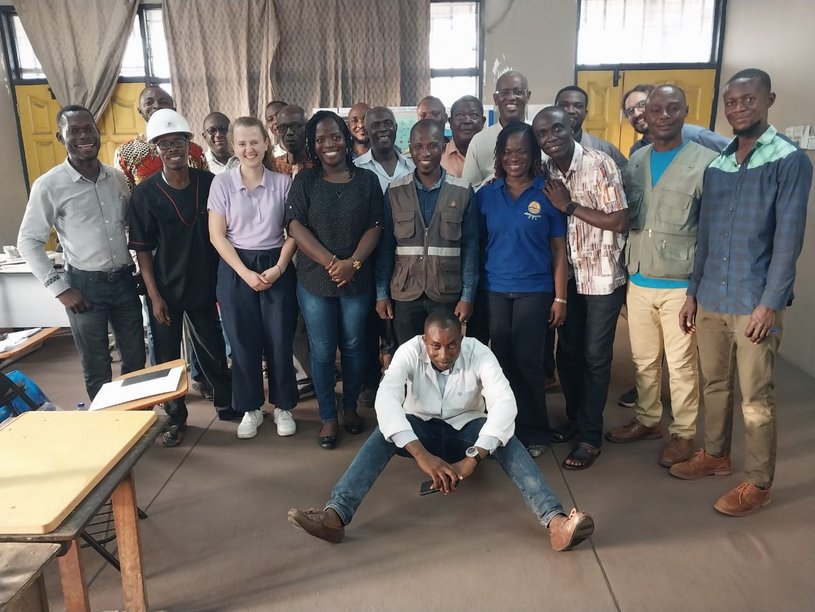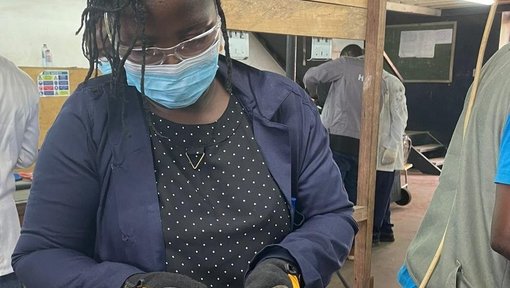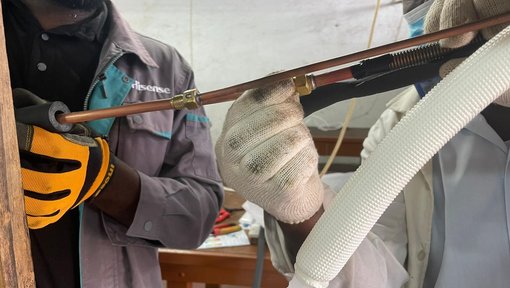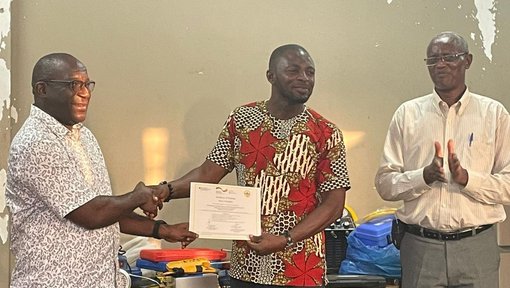In October 2023, 18 trainers from ten different institutions and companies participated in a 4-day training for trainers in Ghana on highly efficient Green ACs running on the ultra-low refrigerant Propane (R290). The training was organized jointly by EPA (Environmental Protection Agency)-Ghana and GIZ’s project Sustainable Energies and Energy Efficiency for Climate Protection in Ghana (SE4C).
Training of Trainers (Refresher) on Installation and Maintenance of R290 ACs and Safe Handling and Natural Refrigerants in Ghana
The main objective of this training was to ensure that skilled technicians in the Refrigeration and air conditioning (RAC) sector in Ghana can safely handle flammable refrigerants. Qualified professionals to service and maintain R290 ACs technologies create an enabling environment for their adoption. This was a refresher training of trainers who have already been trained by the Green Cooling Initiative project and trainers from HEAT GmbH. This activity updates the knowledge and skills of the trainers regarding emerging issues and current advancement in the R290 ACs technology.
This training for RAC trainers took place from 31.10 to 3.11.2013 at the RAC Centre of Excellence at Accra Technical Training Centre (ATTC). It was part of the training Qualification, Certification, and Registration (QCR) component implemented by SE4C and is financed by BMZ, implemented by Proklima. The activity expands the QCR Standard promoted by Proklima for the promotion and safe use of natural refrigerants. Following this training 2 additional 2-day refresher courses for technicians will take place from 06.11 to 09.11 at Hisense and Electroland, Accra.
Photo gallery
The refrigerant shift in the RAC sector
RAC technology is of paramount importance in Ghana, as the demand for air conditioning increases with growing prosperity and rising temperatures due to global warming. Under the Montreal Protocol and its Kigali Amendment, Ghana has committed to withdraw air conditioning systems that operate with hydrochlorofluorocarbons (HCFC) and hydrofluorocarbons (HFCs) from the market. As a result, demand from RAC energy efficient units based on natural refrigerants, which operate at different conditions and their installation requires certain specifications, will increase. Propane (R290), for example, has an ultra-low global warming potential, and has zero impact on the ozone layer. The project led by the Ministry of Energy of Ghana, Sustainable Energies and Energy Efficiency for Climate Protection (SE4C), plans to develop a national standard to attend this particularity. It is intended to introduce the standard by mandatory regulation.




